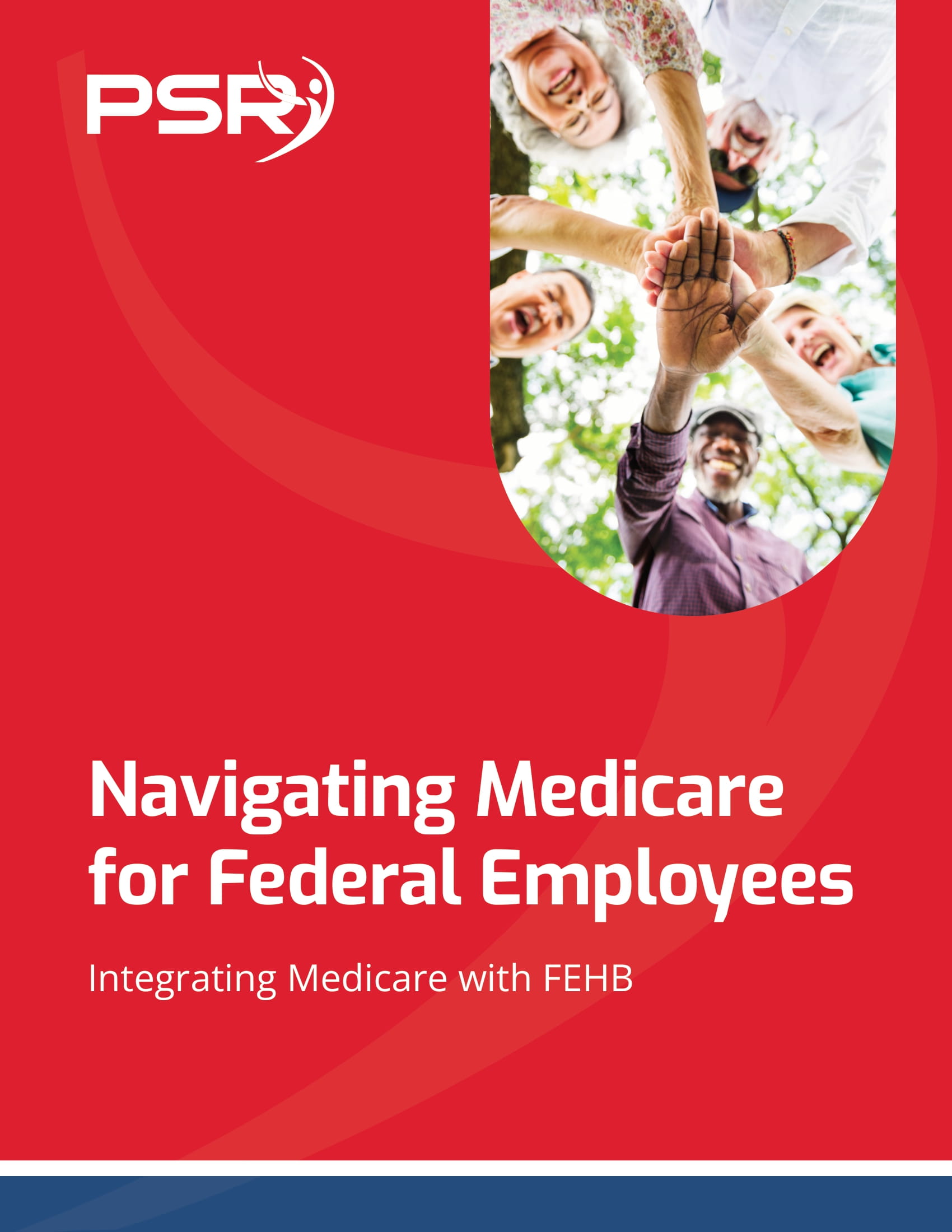Key Takeaways:
- The Federal Employees Health Benefits (FEHB) program offers a range of health insurance plans to federal employees, including HMO, PPO, and fee-for-service options.
- Choosing the best FEHB plan requires understanding the different types, evaluating coverage needs, and considering costs and benefits.
Learn About Health Insurance Options for Federal Employees
Health insurance is a critical component of the benefits package for federal employees. The Federal Employees Health Benefits (FEHB) program provides a variety of health insurance plans to meet the diverse needs of federal workers and their families. This article explores the FEHB program, compares different plan types, and offers tips for choosing the best health insurance coverage.
Understanding the Federal Employees Health Benefits (FEHB) Program
- Also Read: Divorce and Your Federal Pension—What Happens When You Split Assets and How It Could Affect Your TSP
- Also Read: What Happens to Your Federal Benefits After Divorce? Here’s the Lowdown
- Also Read: The Best FEHB Plans for 2025: Which One Fits Your Lifestyle and Budget the Best?
Key Features of FEHB
- Variety of Plans: The FEHB program includes Health Maintenance Organizations (HMOs), Preferred Provider Organizations (PPOs), and fee-for-service (FFS) plans, among others.
- Comprehensive Coverage: FEHB plans provide comprehensive coverage, including medical, dental, vision, and prescription drug benefits.
- Portability: Employees can carry their FEHB coverage into retirement, ensuring continuous health insurance protection.
- Open Season: Each year, during the open season, federal employees can enroll in, change, or cancel their health insurance plans. This period allows employees to review and adjust their coverage based on changing needs.
Evaluating FEHB Plan Types: HMO, PPO, and Fee-for-Service Options
Choosing the right FEHB plan requires understanding the differences between HMO, PPO, and fee-for-service plans. Each type offers unique benefits and drawbacks.
Health Maintenance Organizations (HMOs)
HMOs provide health services through a network of doctors, hospitals, and other healthcare providers. Members typically need to choose a primary care physician (PCP) and obtain referrals to see specialists.
Advantages of HMOs
- Lower Out-of-Pocket Costs: HMOs usually have lower premiums and out-of-pocket costs compared to other plan types.
- Coordinated Care: With a PCP managing your care, HMOs emphasize preventive services and coordinated care.
- No Deductibles: Many HMO plans do not require deductibles, reducing upfront costs for healthcare services.
Disadvantages of HMOs
- Limited Provider Network: HMOs restrict coverage to healthcare providers within their network. Out-of-network care is usually not covered, except in emergencies.
- Referral Requirement: Obtaining a referral from your PCP can add an extra step before seeing a specialist.
Preferred Provider Organizations (PPOs)
PPOs offer more flexibility by allowing members to see any healthcare provider, but they provide higher benefits for services received from in-network providers.
Advantages of PPOs
- Flexibility: PPO members can see any healthcare provider without a referral, offering more freedom in choosing doctors and specialists.
- Out-of-Network Coverage: PPOs provide coverage for out-of-network care, although at a higher cost than in-network services.
- Nationwide Network: PPO plans often have a broad network of providers across the country, making them ideal for employees who travel frequently.
Disadvantages of PPOs
- Higher Premiums: PPO plans generally have higher premiums compared to HMOs.
- Cost Sharing: PPO members may face higher out-of-pocket costs, including deductibles, copayments, and coinsurance.
Fee-for-Service (FFS) Plans
FFS plans allow members to see any healthcare provider, with the plan reimbursing a portion of the cost. These plans may be paired with a preferred provider organization (PPO) network to lower costs for in-network services.
Advantages of FFS Plans
- Freedom of Choice: Members can see any doctor or specialist without needing referrals or choosing from a network.
- Out-of-Network Flexibility: FFS plans offer substantial coverage for out-of-network care, providing flexibility for those who want unrestricted access to providers.
Disadvantages of FFS Plans
- Higher Costs: FFS plans typically have higher premiums, deductibles, and out-of-pocket costs.
- Complex Reimbursement: Members may need to pay upfront for services and file claims for reimbursement, adding complexity to managing healthcare expenses.
Tips for Choosing the Best FEHB Plan to Maximize Your Health Coverage
Selecting the right FEHB plan involves evaluating your healthcare needs, comparing plan options, and considering costs and benefits. Here are some tips to help you make an informed decision.
Assess Your Healthcare Needs
- Medical History: Consider your and your family’s medical history. If you have chronic conditions or expect to need regular medical care, choose a plan that provides comprehensive coverage with lower out-of-pocket costs.
- Preferred Providers: Identify any preferred healthcare providers and check if they are included in the plan’s network.
- Prescription Drugs: Review the plan’s formulary to ensure it covers your necessary medications. Look for plans with lower copayments for prescription drugs.
Compare Plan Options
- Premiums and Out-of-Pocket Costs: Compare the monthly premiums, deductibles, copayments, and coinsurance for each plan. Balance the costs against the coverage provided.
- Plan Types: Consider the advantages and disadvantages of HMOs, PPOs, and FFS plans. Choose the plan type that best aligns with your healthcare needs and preferences.
- Coverage Limits: Check for any coverage limits, such as maximum out-of-pocket expenses or annual coverage caps.
Consider Additional Benefits
- Wellness Programs: Some FEHB plans offer wellness programs, such as gym memberships, smoking cessation programs, and preventive care incentives. These programs can enhance your health and well-being.
- Telehealth Services: Look for plans that provide telehealth services, allowing you to access healthcare providers remotely.
- Dental and Vision Coverage: Evaluate the dental and vision benefits included in the plan. Some plans offer comprehensive dental and vision coverage, while others may provide basic benefits or require additional premiums.
Utilize Available Resources
- FEHB Plan Comparison Tool: Use the OPM’s FEHB plan comparison tool to compare different plans based on premiums, coverage, and benefits.
- Consult HR: Speak with your human resources office for guidance on selecting the best plan based on your specific needs.
- Open Season: Take advantage of the open season to review and adjust your health insurance plan. This period is an excellent opportunity to make changes based on your evolving healthcare needs.
Conclusion
Understanding and selecting the right health insurance options through the Federal Employees Health Benefits (FEHB) program is essential for federal employees. By evaluating different plan types, assessing your healthcare needs, and considering costs and benefits, you can choose a plan that maximizes your health coverage and meets your personal and family needs. Utilize available resources and regularly review your coverage to ensure it continues to provide the best protection for your health and well-being.
Contact Information:
Email: [email protected]
Phone: 7735026467
Bio:
Todd Carmack grew up in Dubuque, Iowa, where he learned the concepts of hard work and the value of a dollar. Todd spent years in Boy Scouts and achieved the honor of Eagle Scout. Todd graduated from Iowa State University, moved to Chicago, spent a few years managing restaurants, and started working in financial services and insurance, helping families prepare for the high cost of college for their children. After spending years in the insurance industry, Todd moved to Arizona and started working with Federal Employees, offing education and options on their benefits. Becoming a Financial Advisor / Fiduciary can help people properly plan for the future. Todd also enjoys cooking and traveling in his free time.
Disclosure:
Investment advisory services are offered through BWM Advisory, LLC (BWM). BWM is registered as an Investment Advisor located in Scottsdale, Arizona, and only conducts business in states where it is properly licensed, notice has been filed, or is excluded from notice filing requirements. This information is not a complete analysis of the topic(s) discussed, is general in nature, and is not personalized investment advice. Nothing in this article is intended to be investment advice. There are risks involved with investing which may include (but are not limited to) market fluctuations and possible loss of principal value. Carefully consider the risks and possible consequences involved prior to making any investment decision. You should consult a professional tax or investment advisor regarding tax and investment implications before taking any investment actions or implementing any investment strategies.












